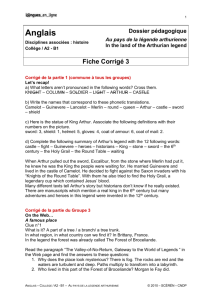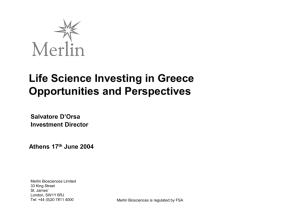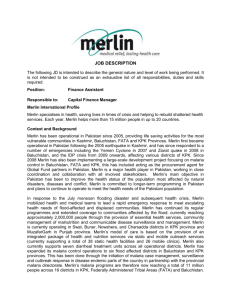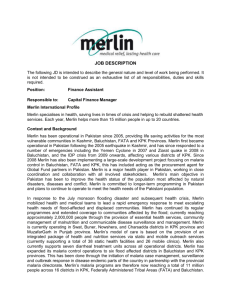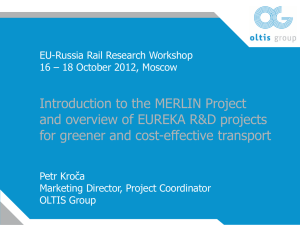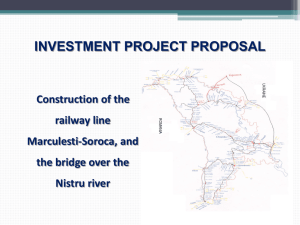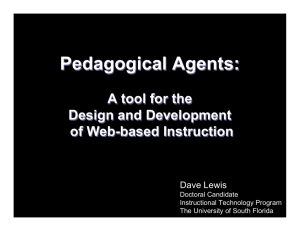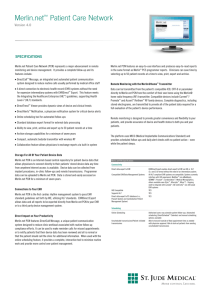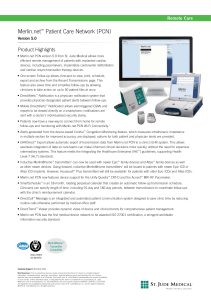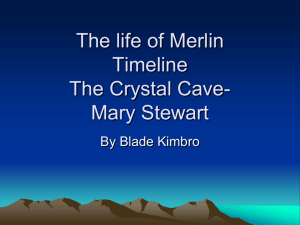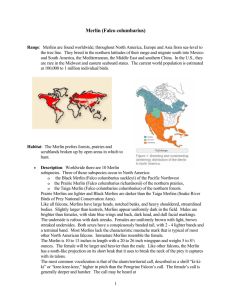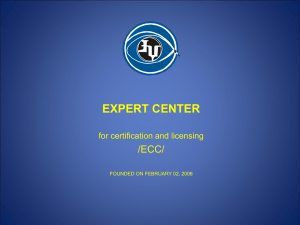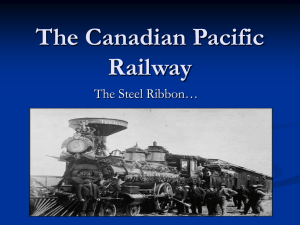UNIRAILINFRA Committee meeting
advertisement
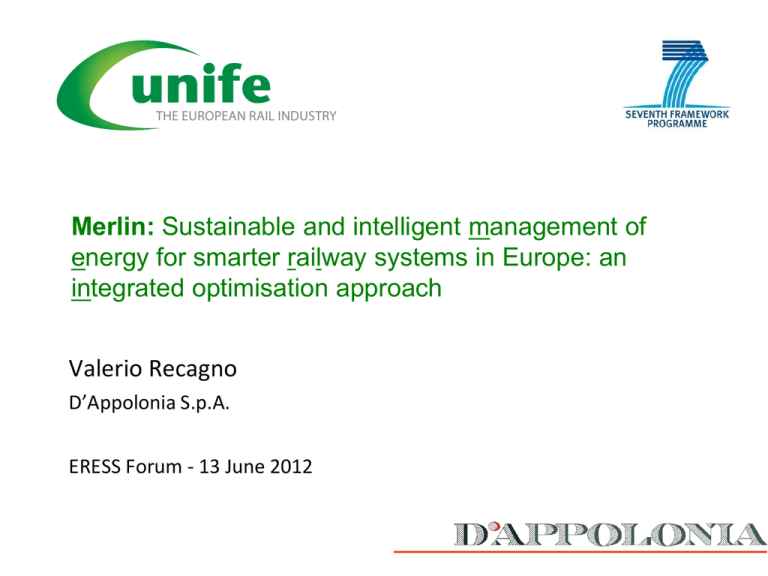
Merlin: Sustainable and intelligent management of energy for smarter railway systems in Europe: an integrated optimisation approach Valerio Recagno D’Appolonia S.p.A. ERESS Forum - 13 June 2012 MERLIN Facts and Figures Total budget: € 7,0€ million (4.5 mil € EC funding under FP7) Project Duration: 36 months Project Kick off: 1 October 2012 Partners: 1. 2. 3. 4. 5. 6. 7. 8. 9. 10. 11. 12. 13. 14. 15. 16. 17. 18. 19. UNIFE (coordinator) UIC ADIF Alstom AnsaldoSTS CAF (Technical leader) D’Appolonia FFE UNEW ZS RFF RENFE MerMec Oltis AnsaldoBreda Network Rail RWTH - Rheinisch Westfälische Technische Hochschule Aachen Trafikverket Siemens 2 MERLIN General objectives MERLIN’s main aim and concept is to investigate and demonstrate the viability of an integrated optimization to achieve a more sustainable and intelligent management of energy demand and usage in European electric railway systems. More efficient traction energy supply based on optimised use of resources Improved design of future railway distribution networks and electrical systems as well as their interfaces with the public grid Better understanding of the influence on energy demand of operations and operational procedures of the different elements of the railway system Identification of technologies and solutions able to further contribute to the optimisation of energy usage To develop the architecture specifications of an integrated energy optimisation model for the design and operation of networks To identify and define real railway operation scenarios suitable for intelligent management of energy To develop decision-support tools on those scenarios based on the MERLIN’s architecture specified 3 MERLIN Expected Results (1/2) In 36 months, MERLIN will deliver: Issue of proposal for Technical Recommendations (UIC/UNIFE TecRec): Specification and verification of energy & power consumptions for railway systems (calculation and verification methodology). Energy and power related information protocols at operational level (interface between the ground and the train can be standardized). Future Business models & recommendations (smart energy management, cost saving): Fair share of the savings (game theory). Identification of interfaces between infrastructure and rolling stock components & between railway network and energy. Recommendations supporting the fulfilment of Directive 2009/72/EC for instance those related to closed distribution systems. … 4 MERLIN Expected Results (2/2) … (cntd) Optimised solutions for current and future business models: Distributed architecture for smart energy management (onboard energy management, dynamic response) Energy dispatcher – mission, requirements/architecture, proof of concept by demonstration Onboard and wayside smart components Pilot case for assessment Numerical models and simulations to demonstrate the architecture developed for the above TecRec. 5 MERLIN Holistic optimisation approach 6 MERLIN Objective towards 2009/72/EC Support of the fulfillment of the requirements in Directive 2009/72/EC regarding third party access to transmission and distribution systems in railways: Issuing tools and components which will help infrastructure managers and train operators on implementing the Directive 2009/72/EC. Developing position paper on the matter will be elaborated with the collaboration of the Rail Reference Group. Future Business models & recommendations (smart energy management, cost saving): Fair share of the savings (game theory). Identification of interfaces between infrastructure and rolling stock components & between railway network and energy. Recommendations supporting the fulfilment of Directive 2009/72/EC for instance those related to closed distribution systems. 7 MERLIN Thank you for your attention! 8

